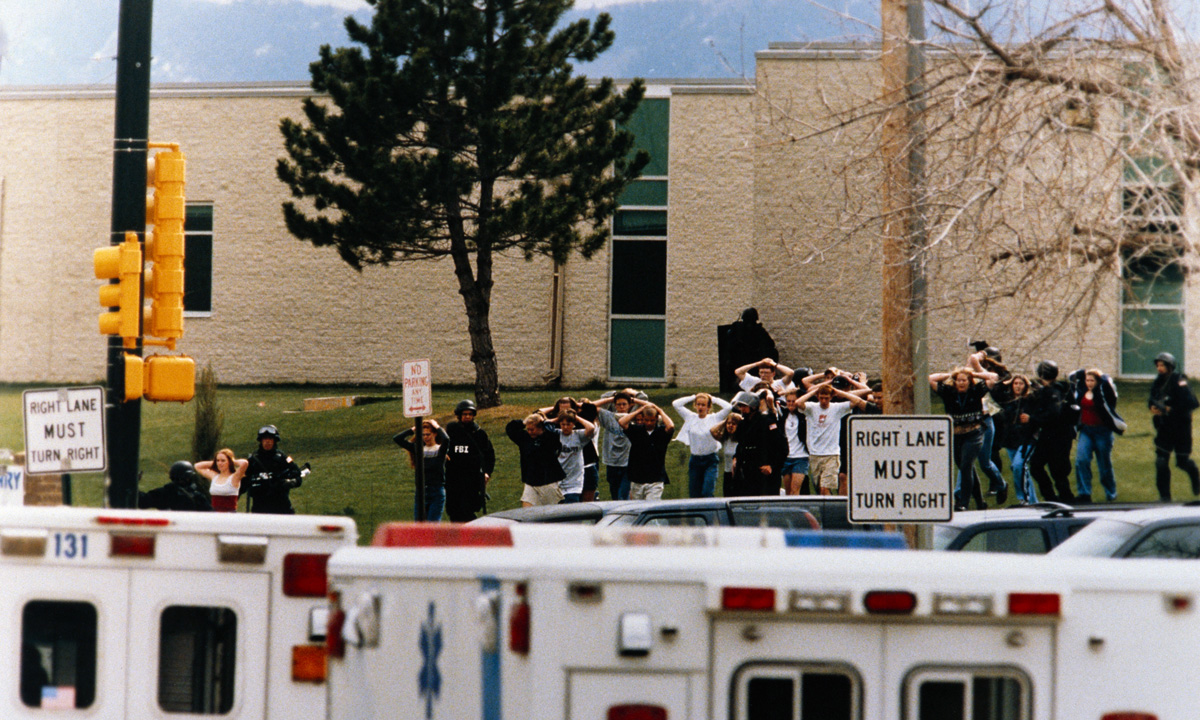Our Schools Were Victims of Mass Shootings. We Know What Congress Needs to Do
Principals' view: Long after a tragedy, the real recovery begins. Schools need help to support mental health, deal with trauma and stop swatting

Get stories like this delivered straight to your inbox. Sign up for The 74 Newsletter
We never thought it would happen to our schools. No one does. But on our fateful days, our schools became statistics — part of the grim tally of campuses forever changed by gun violence. We are founding members of the NASSP Principal Recovery Network, a group of school leaders who have experienced gun violence in our buildings, an organization born from tragedy and united by a commitment to healing and saving lives.
Frank remembers wondering if he would ever see his family again; whether he told them he loved them when he left for Columbine High School that morning. Patricia remembers her staff at Marshall County High School tending to 20 injured students. Greg remembers the piercing shotgun blasts at West-Liberty Salem High School and his kids running through muddy ditches in search of safety. These memories will always haunt us, but they also fuel our determination that no other school should endure what ours have.
When the news crews leave and the attention fades, the real recovery work begins. It’s a long road that we’ve walked ourselves and now guide others down. After a school experiences a shooting — an average of about one per day occurred in 2023 — we call their principals and offer our experience and understanding in the immediate aftermath and beyond.
After years of talking through tragedies affecting vastly different communities, we know which supports are critical to prevent and recover from shootings, and which fall short. On Sept. 23, we sat on a House Oversight Committee roundtable on “The Long-Term Effects of Gun Violence on Schools, Young People and their Communities” and urged members of Congress to significantly increase funding in three critical areas.
First, they need to expand and extend Project SERV grants. At West-Liberty Salem High School, these funds were a lifeline, allowing Greg to hire Deputy J, a school resource officer, and Mrs. Leichty, a mental health clinician. Deputy J has become the heart of the school community. He coaches high school football, reads to young students at our co-located elementary school and shares lunch with kids in the cafeteria. All the while, he provides a crucial sense of safety and security.
Mrs. Leichty works alongside the high school counselor helping students grapple with sleepless nights, falling grades and intrusive thoughts in the aftermath of trauma. But SERV grants run out long before the need for these staff members does. Every year, Greg must piece together funds to keep them employed, knowing students still desperately need their support.
Second, Congress must invest in educators through programs like Title II. Teachers are on the front lines — not just for academic growth, but for identifying and addressing students’ emotional needs. They need training and resources to take on this enormous responsibility. Moreover, a staggering 86% of K-12 public schools reported they had challenges in hiring teachers last school year. And Title II, which provides funding for professional development and teacher preparation, is key to making sure each classroom is headed by a talented and caring person. Unfortunately, the House has proposed defunding this program. The nation is already losing too many excellent educators and can’t afford to leave those who stay behind ill equipped to handle the challenges they face.
Third, Congress must address the critical shortage of mental health staff. Many communities, particularly in rural areas, lack qualified counselors to prevent violence and help in the aftermath of traumatic events, and community mental health providers often have months-long waiting lists. These challenges limit a counselor’s ability to provide student services and leave many children without the support they need. More funding is urgently needed to hire additional counselors and mental health staff to make sure all students get the care they deserve.
Schools are uniquely positioned to provide mental health support, but they need help to meet the growing demand. While the Bipartisan Safer Communities Act infused much-needed resources into an underfunded system, the scale of the crisis demands so much more.
Beyond federal funding, Congress can act on three other critical pieces of legislation. The Mental Health of Educators and Staff Act would establish vital grants and require federal agencies to develop evidence-based practices that promote mental health and resiliency among educators responsible for students’ well-being. The Mental Health Services for Students Act would use competitive grants to bring licensed professionals directly into schools dealing with traumatic experiences, grief, bereavement, risk of suicide and violence.
The third bill, which is being written by Sen. Ron Wyden, is particularly important to schools like Columbine that have become common swatting targets. The act would address the growing crisis of fake threats by requiring the Department of Justice to aid law enforcement agencies in identifying likely swatting calls, creating a national “do not swat” registry modeled after the Seattle police department’s successful system and providing grants to 911 services to update their caller ID technology.
These bills represent concrete steps toward creating safer, more resilient school communities. Their implementation, combined with proper funding, would provide schools with the comprehensive support system needed to prevent tragedies and ensure proper care for students and staff alike.
As the budget discussions resume after the election, we call on the nation’s leaders to summon the courage and compassion needed to protect America’s children. Our experiences have shown us the way forward. We ask only that those in power have the strength to follow it.
Get stories like these delivered straight to your inbox. Sign up for The 74 Newsletter

;)


